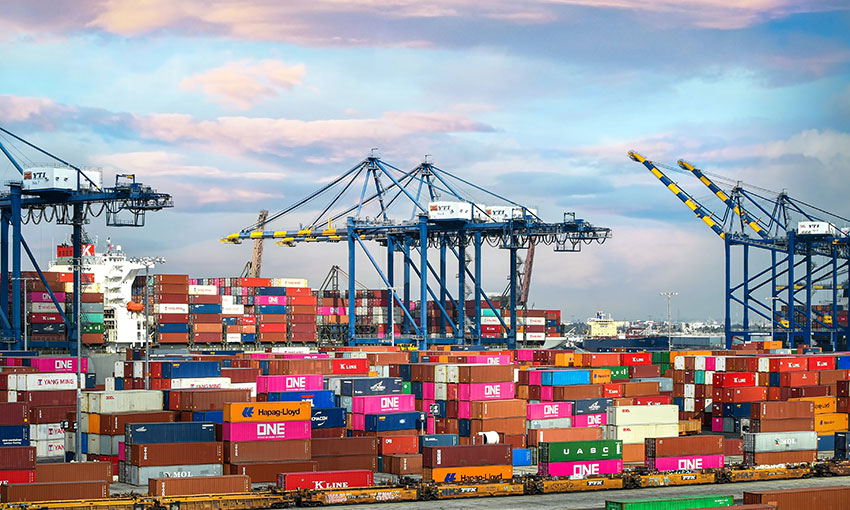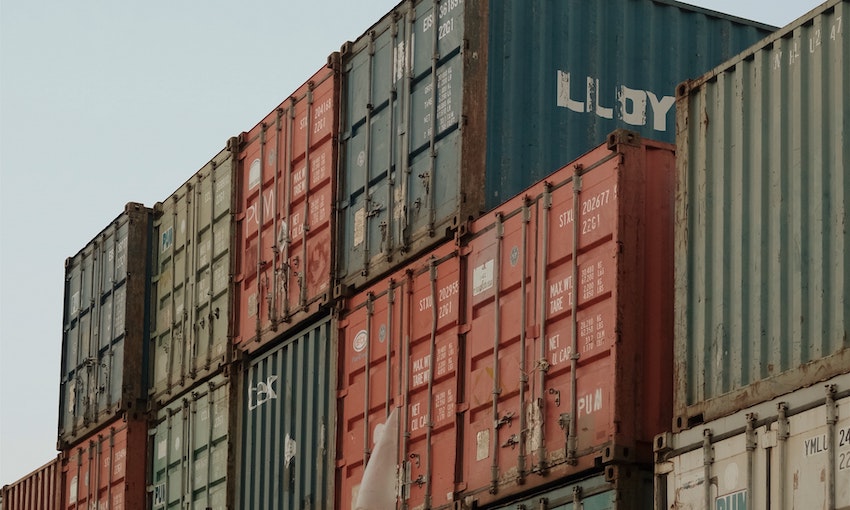THE US Federal Maritime Commission has determined that high ocean freight rates since the pandemic started are the product of supply and demand market forces.
In its Final report for Fact Finding 29, “The effects of COVID-19 on the US international ocean transportation supply chain”, the FMC presented the findings of a two-year investigation.
FMC Commissioner Rebecca F. Dye said: “The historically high freight rates experienced recently by US exporters and importers have been devastating to many, but I want to emphasise that the commission has done its job during the COVID-19 pandemic to enforce our competition authority.
“Our markets are competitive and the high ocean freight rates have been determined by unprecedented consumer demand, primarily in the United States, that overwhelmed the supply of vessel capacity. Congestion further constrained available capacity.” Commissioner Dye said.
The FMC launched Fact Finding 29 on 31 March 2020, 18 days after the President declared a national emergency concerning COVID-19.
During the first two phases of Fact Finding 29, FMC’s fact finding officer spoke to “hundreds of US importers, exporters, truckers and others”.
They found the three areas of most concern were: the increase of price of ocean shipping during the pandemic, the ongoing “unreasonable detention and demurrage charges and other charges imposed by ocean carriers, seaports and marine terminals”, and the supply-chain bottlenecks due to unresolved operational problems.
At the end of the investigation, the FMC concluded that the current market for ocean liner services in the trans-Pacific is “not concentrated” and the trans-Atlantic trade is “minimally concentrated”.
The report says: “Competition among ocean common carriers among the three major alliances and among the members in each of these alliances, is vigorous. The market for ocean services remains highly contestable, particularly in the trans-Pacific trade. Finally, the fact finding officer concludes that although certain ocean transportation prices, especially spot prices, are disturbingly high by historical measures, those prices are exacerbated by the pandemic, an unexpected and unprecedented surge in consumer spending, particularly in the United States, and supply chain congestion, and are the product of the market forces of supply and demand.”
The report also said the FMC is still concerned that “certain ocean carriers” are not in full compliance with the “incentive principle” of the commission’s Interpretive Rule on Demurrage and Detention.
The Interpretive Rule on Demurrage and Detention, which came into effect on 18 May 2020, aims to provide guidance as to what the FMC may consider when assessing whether a demurrage or detention practice is unjust or unreasonable. Specifically, under the rule, the FMC considers how detention and demurrage charges and policies serve the purpose of incentivising the movement of cargo and promoting freight fluidity.
Commissioner Dye said: “I am pleased that during the pandemic the commission has moved forward on enforcement of the Interpretive Rule on Detention and Demurrage and ensuring compliance by carriers with the ‘incentive principle’ embodied in the rule.
“I look forward to implementation by the Commission of my Final Recommendations, which I believe will provide badly needed clarity and consistency in certain port and supply chain operations, especially involving ‘earliest return dates’ and ‘empty container return’,” she said.
Fact Finding 29’s 12 recommendations include:
- A new Commission “International Ocean Shipping Supply Chain Program”;
- A rulemaking to provide coherence and clarity on Empty Container Return practices;
- A rulemaking to provide coherence and clarity on Earliest Return Date practices;
- Continued Commission support for the new FMC “Ocean Carrier Compliance Program” including a new requirement for ocean common carriers, seaports, and marine terminals to employ an FMC Compliance Officer;
- An FMC Outreach Initiative to provide more information to the shipping public about FMC competition enforcement, service contracts, forecasting, and shippers associations, among other topics;
- Enhanced cooperation with the federal agency most experienced in agricultural export promotion, the Department of Agriculture, concerning container availability and other issues;
- A Commission Investigation into practices relating to the numerous charges assessed by ocean common carriers and seaports and marine terminals through tariffs;
- A rulemaking to provide coherence and clarity on merchant haulage and carrier haulage;
- A new “National Seaport, Marine Terminal, and Ocean Carrier Advisory Committee” to work cooperatively with the Commission’s National Shipper Advisory Committee;
- A revival of the Export Rapid Response Team program as agreed by all ocean carrier alliance CEOs;
- An FMC Supply Chain Innovation Teams engagement to discuss blank sailing coordination and information availability; and
- A reinvigorated focus on the extreme supply chain equipment dislocations in Memphis railheads, other rail facilities, and other facilities around the country.
The full report is available for download in the FMC’s website.



